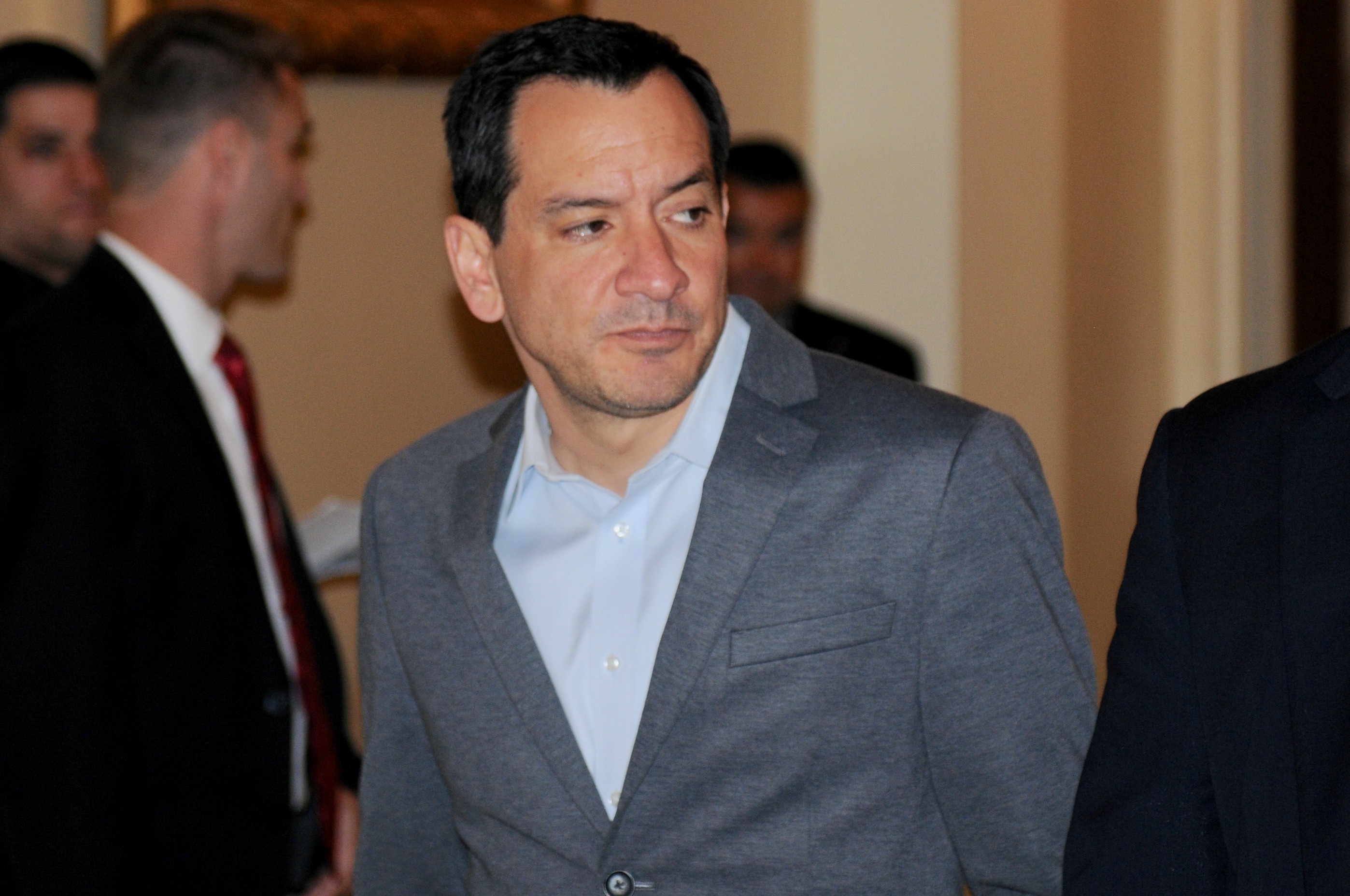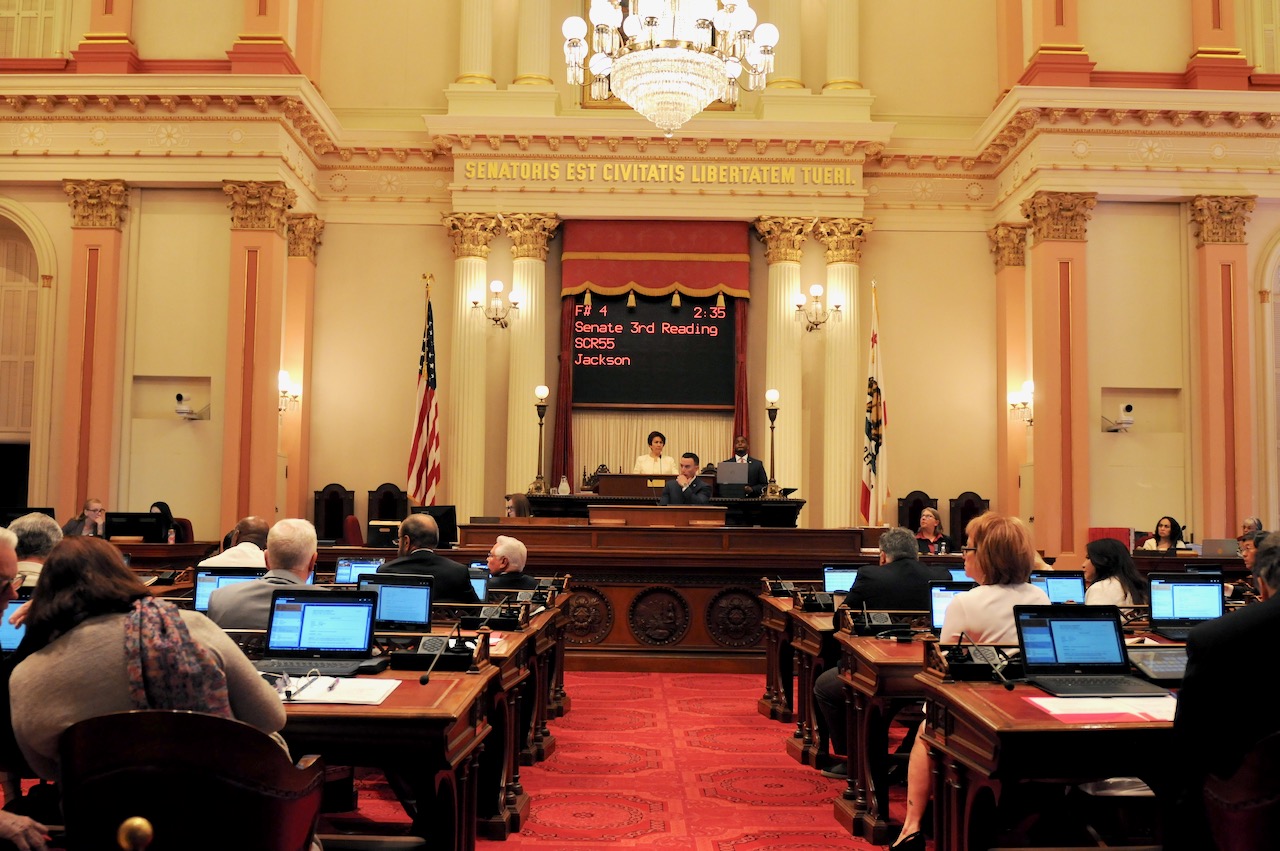
Aerial view of a Downtown Los Angeles at sunset. (Photo: Shutterstock TierneyMJ)
The California Endowment: Social Justice Warriors or Tokenistic Hypocrites?
‘Why do they spend so much on white male consultants to get the equity message out?’
By Thomas Buckley, June 4, 2023 2:30 am
Note – the information for this story was gathered through public and insider sources, who wish to remain anonymous. The Globe has verified the sources are in a position to know of what they speak and we are honoring the request by including no potentially personally identifying information in this article.
The California Endowment spends millions of dollars each year extolling diversity, inclusion, social justice, and promoting just about every “woke” – or equitarian – hot topic there is.
The question is – do they practice what they preach?
According to new information, the answer is almost assuredly no.
The Endowment was created when Blue Cross of California acquired a for-profit company and state regulators demanded a pair of non-profit health-care focused foundations be created as a condition for the deal going forward. Since its inception in 1996, the Endowment – which was one of them – has grown to a funding behemoth – $4 billion in the bank, $200 million or so spent each year ($60 million-ish on administration and salaries and such) that pulls strings across California’s line-blurring non-profit/government ooze pond like a very woke puppet master.
Its definition of “health care” is expansive, to say the least, and includes almost every aspect of day-to-day life. The Endowment’s longtime, $800,000-plus per year president Dr. Robert Ross, wrote in a paper last year that:
“At the California Endowment, our community health improvement work borrows heavily from the environmental justice movement. However, we have expanded the concept of “environment” beyond the physical to a broader embrace of the role that the social determinants of health play in shaping healthy “opportunity environments.” This includes the performance of key systems such as education, health care, land use, and criminal justice.”
For the entire paper, see HERE.
The Endowment’s articles of incorporation do state it shall not involve itself in direct politics (more on the specifics of this below), but it appears by changing the definition of health care it may be easier to justify.
By expanding its purview, the Endowment is able to expand its sphere of influence into areas that most would think are not strictly “health care’ related, such as this recent posting on its (thankfully not often visited – posts tend to garner a few hundred, maybe a thousand views each) Twitter page:

For more of the same, see the entire Twitter page here, and main website here.
It is not the politics of the Endowment that bothers a self-described progressive insider, though. It is the hypocrisy. In fact, a civil suit has been filed alleging the Endowment violated state labor law.
“Why do they spend so much on white male consultants to get the equity message out,” one insider questioned. “I agree with the intent (of the social justice messaging) but am uncomfortable with their means to get the work done. Lots of dollars meant for underserved populations of California go to consultants.”
Interestingly, unlike almost every other “player” in Los Angeles politics, the Endowment did not condemn the Nury Martinez/LA city council racism scandal; a silence may have been due to certain City Hall friendships.
The Endowment has an odd way of approaching diversity as well, engaging in a course of hiring that maintains its appearance of being diverse but actually comes across as tokenistic and offensive.
And it was noted that rather than strictly sticking to longer-term goals, the executive team tends to “move from one issue of the day to another.”
“It’s equity by checklist,” said an insider.
As to management itself, an insider said that with the approaching retirement of Ross, he and his underlings are – and have been for some time – in “legacy mode,” finding and funding “pet” projects rather than being open to community-based organizations and devoting enough energy to actually helping Californians.
In general, an insider said, the executives of the 140-employee foundation rely heavily on consultants – the Endowment spent about $14 million on “other professional fees” according to its most recent IRS filing – to “actually do their jobs for them” while they play politics and indulge whatever charitable fashion of the moment may be.
Some described the work culture as one that seems to reward bad work, riddled with long delays in responding to inquiries, and rife with pressure to conform and agree with the higher-ups. Staff comments indicate that open and honest dialogue is rare inside the walls of The Endowment.
“People are scared to talk,” one insider revealed.
The Endowment also does not fare terribly well in public workplace reviews on websites like Glassdoor. The majority of the positive notes are about the 9/80 workweek and the good benefits – as even the negative reviews state – but internal issues consistently pop up:
“Politics are running the show”
“Blame it on whatever you want – office politics, top-down hierarchy, micromanaging superiors, higher ups who abuse their power – but the environment is TOXIC. For all their talk of equity and racial justice, nothing they ever do is equitable.”
“Pros
Brilliant and committed colleagues who care deeply about the community and work hard to align values and actions. Responsive leadership, great pay and benefits.
Cons
Entitlement mentality among some staff. Nothing is ever good enough. Some staff are quick to complain and hold everyone accountable but themselves.
Advice to Management
Mgmt needs to pay attention to the type of culture it wants to build. Allowing greater staff input is great but not if intentionally toxic and negative. Negative staff take advantage of management’s efforts to be kind, inclusive and compassionate.”
“The culture was awful. Very political at the time I was employed. Felt like high school.”
To see for yourself, visit – Glassdoor.
Turning back to the politics of the Endowment, while their activities may be ethically questionable, they are most likely not illegal or improper.
While Article 4 of their incorporation paper explicitly states that: “No substantial part of the activities of this corporation shall consist of carrying on propaganda, or otherwise attempting to influence legislation…” this is actually rather standard language, said noted San Francisco political attorney Jim Sutton.
It is the “substantial part” term that allows the Endowment to do what it does. Sutton said that typically means that a foundation like the Endowment cannot spend more than about 10% of its annual budget on political activity. While none may go directly to candidates, it is permissible, despite the “attempting to influence” term, to lobby in Sacramento and DC and to help fund proposition campaigns, as the Endowment did to the tune of about $600,000 to help get the decriminalization Proposition 47 passed.
With an annual budget in the $200 million range, Sutton said it would be highly doubtful the Endowment would be in violation of the 10% standard.
This assessment is supported by the relatively small amounts expended in lobbying Sacramento, work that is typically done through another non-profit, like Community Partners of Los Angeles.
According to a state filing, Community Partners spent about $112,000 of Endowment funds early last year on lobbying “The California Transportation Commission regarding advocating for more equitable and healthy practices in planning, funding, and building transportation infrastructure; California Air Resources Board regarding advocating for clear air solutions; California Legislature regarding advocating for equitable land use and transportation policies.”
Interestingly, in 2021 Community Partners got about $3.3 million from the Endowment to support a number of different projects, including $850,000 for a “CALIFORNIA NATIVE VOTE PROJECT – BUILDING POWER FOR HEALTH: TO SUPPORT EFFORTS TO BUILD POWER AMONG NATIVE AMERICAN COMMUNITIES THROUGH THE WORK OF COMMUNITY ORGANIZING, YOUTH ORGANIZING, ADVOCACY, LEADERSHIP DEVELOPMENT AND VOTER EDUCATION AS A MEANS TO ADVANCE COMMUNITY HEALTH IN CALIFORNIA.”
The inclusion of “as a means to advance community health in California,” hearkens back to issue of the expanded definition because no matter the percentage of dollars spent on politics, they should be spent in the general purview area expected: health care.
It should be noted that Community Partners – which dubs itself a “fiscal partner” to the other groups it works with and is housed in the Endowment’s Los Angeles headquarters building – has an annual budget of about $70 million, $34 million – or about half – of which went to staff compensation.
The Endowment may not be living up to its own standards and it may be engaged in ethically-challenged overtly political activities, but it is doubtful at this point that any of that may be strictly illegal.
To that end, here’s the Endowment’s version of the Pledge of Allegiance:
Our pledge to community, to public health, to each other, and to ourselves. 💘 #WeBelongInCA pic.twitter.com/HhQAWAfZAX
— California Endowment (@CalEndow) September 30, 2022
Well, at least they mention the United States of America.
For the record, the Endowment was contacted for comment but, unlike for the previous article (see above) they did not deign to return any emails. As per Globe practice, here are the questions they did not bother to reply to:
· Previously you defined health care rather broadly, stating “The definition of health is not just health care, it is shown through research and other health experts that the place where you live, work, go to school, play, etc. can have both negative and positive impact on your health.” Is this a definition you stand by or would you care to modify as it encompasses nearly every facet of life?
· Did TCE create that definition in order to be able to fund clearly political activities it is banned by its charter from engaging in?
· In his paper – https://www.healthaffairs.org/doi/10.1377/hlthaff.2022.00540 – Ross states the “democratic approach” to health is fundamentally political, including specifically referencing how “organized communities” can influence all aspects of the political/regulatory/judicial world. Does the TCE stand by these comments and if so can you explain how they do not fall under the strict ban on political activities – including “attempting to influence legislation” – in article 4, section A of the TCE incorporation papers?
· Can I assume that this statement informs your blanket re-definition of health care – “At the California Endowment, our community health improvement work borrows heavily from the environmental justice movement. However, we have expanded the concept of “environment” beyond the physical to a broader embrace of the role that the social determinants of health play in shaping healthy “opportunity environments.” This includes the performance of key systems such as education, health care, land use, and criminal justice.”?
Turning to a slightly different subject area, I have researched “job review” websites and in fact heard from a number of current and former employees about the workplace environment at TCE. While it seems most – if not all – employees have high praise for the mission – even the political bent – and the benefits (9/80 specifically), a few problematic themes emerged, even in otherwise positive input:
· TCE heavily promotes racial justice and DEI initiatives, policies, and concepts. However, TCE has been called “tokenistic” – at best – when it comes to actually practicing what is preached. How would respond to that allegation?
· Words like “hypocritical” and “political” and “toxic” have been used to describe the work environment of the TCE. How would you respond to that?
· As to the word “political,” that seems not be being used in the “office politics” sense or even the sense used above, but it has been clearly implied that TCE engages in behind-the-scenes political horse-trading in regard to grant awards with various and sundry electeds, staffers, and departments. How would you respond to that?
· The executive team has been characterized as scattered, inconsistent, legacy-obsessed, whim-driven, and with a tendency to simply push through grants for their own personal reasons. How would you respond to that?
· To sum up, from a Glassdoor review: “Blame it on whatever you want – office politics, top-down hierarchy, micromanaging superiors, higher ups who abuse their power – but the environment is TOXIC. For all their talk of equity and racial justice, nothing they ever do is equitable.” How would you respond to that?
Finally, there is the issue of the invite-only grant system. I am aware that many foundations do this and that it is typically done for gatekeeping purposes to avoid being flooded with pointless requests.
However, such a system is custom-made for atrocious abuse, favor trading, and unquestionably creates a sense of “never ever say anything even remotely off about TCE or they will kick us out and never let us back in!” fear amongst the grantees.
Please justify this system.
How can a group so dedicated to equity and justice and such operate essentially like an exclusive country club when it comes to access, especially since the stated mission of TCE is to serve the people of California? Should TCE set aside at least a portion of its annual bounty for open competitive grants?
You can view the Endowment’s most recent IRS filing here; and Community Partners’ here. And here is a definition of “fiscal sponsorship”.
- Benefit Fraud Problems and Solutions - November 7, 2024
- A Little Exit Poll - November 5, 2024
- Tomorrow’s Headlines Today! - November 5, 2024





“The Endowment” is a front for a toxic brew of ESG and WEF policy implementation, wrapped up in a fish-wrapper of feel-good virtue signaling….
So the California Endowment was created when Blue Cross of California acquired a for-profit company and unelected state regulators DEMANDED that a pair of non-profit health-care focused foundations be created as a condition for the deal going forward with the California Endowment being one of them? How was this allowed? Instead of promoting community health, the California Endowment has morphed to become a radicalized and weaponized division of the Democrat party that pushes Marxist social justice? California Endowment’s longtime $800,000-plus per year president Dr. Robert Ross sounds like a real POS? Where’s the oversight of this monstrous organization?